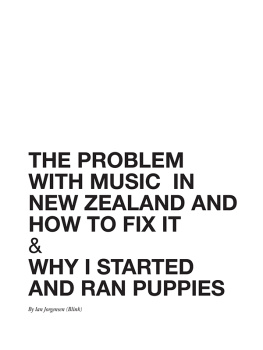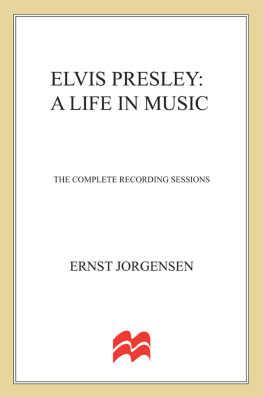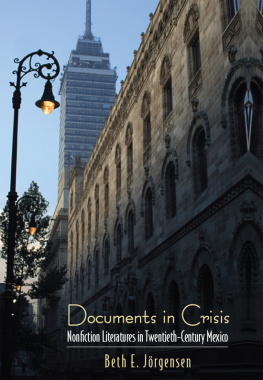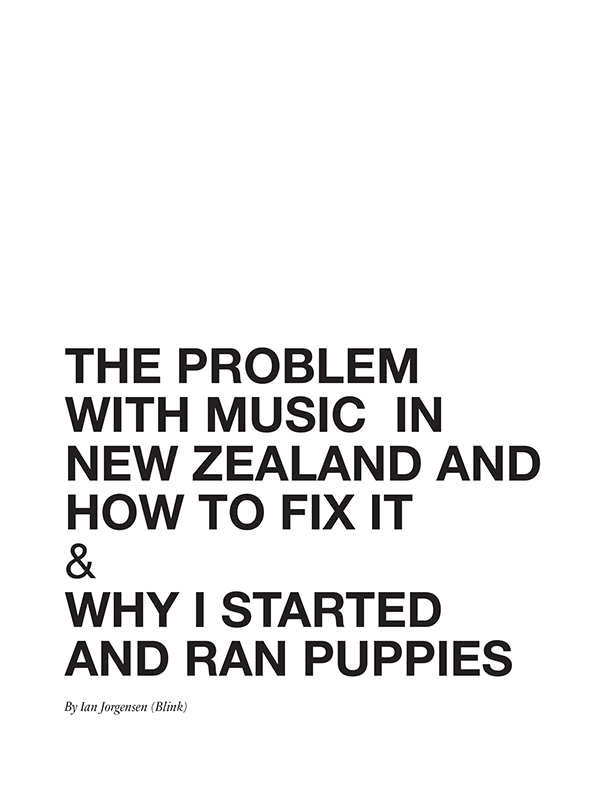THE PROBLEM WITH MUSIC IN NEW ZEALAND AND HOW TO FIX IT
Ian Jorgensen (Blink)
SHOWS RUN TOO LATE & BAND CHANGEOVERS ARE TOO LONG
NEW ZEALAND NEEDS MORE DIY VENUES
LIVE SCENES IN SMALL TOWNS ARE CLOSE TO NON-EXISTENT
APRA and PPNZ are ripping off New Zealand businesses in the name of songwriters who have no idea THIS IS going on.
THERE ARE NOT ENOUGH ALL AGES SHOWS
THE ALCOHOL INDUSTRY USES THE MUSIC INDUSTRY TO FURTHER DOMINATE ITS PRESENCE AND INFLUENCE OVER YOUTH CULTURE
MUSIC FUNDING IN NZ IS JUST A TEMPORARY FIX
GUEST LISTS ARE ABUSED & WHY ARE SHOWS STILL $5?
LIVE MUSIC VENUES NEED TO TAKE MORE RESPONSIBILITY FOR THEIR OWN FUTURES
PLAYING SHOWS TO NICHE AUDIENCES IN A SPARSE POPULATION HAS DIMINISHING RETURNS
Chapter 1
SHOWS RUN TOO LATE & BAND CHANGEOVERS ARE TOO LONG
W hile not exclusively a NZ problem, it is significantly worse here than other countries I have visited. Shows more often than not start 10:30-11 and have long changeovers.
Its partly the venues fault, they want people buying drinks for as long as possible so its good if the entertainment continues past 1am, therefore, most venues dont pressure bands to start early or changeover quickly but expensive bar prices mean most people do the bulk of their drinking at home before the show, which means they arrive at the venue late.
The biggest culprit though, is bands themselves. They pull all sorts of tricks to avoid playing to an empty room or go on first. If the show is organised by the headlining act they usually want to come across as laid-back cats and dont want to boss around the support bands to start early or changeover quickly.
Then there are those who turn up late hoping for a reduced door charge.
Add it all together and it means most people turn up to a show around 11:30pm-12am.
I am positive this is the one major deterrent for most people to go out to see a show. I know it often puts me off, not knowing exactly when the first band will start and not knowing what time Ill get home. Im an old man now and when I get home at 3am it makes the next day a write off.
In the 90s, the two band line-up was standard for most shows in NZ. Over the past decade four-five band line-ups have become more common, bringing a whole raft of problems. Unfortunately nobody seems to be doing anything about this and shows are getting later and later. Most people have just accepted this and dont question it. In other countries though, shows are controlled more by venues. There are often clocks on the stage and bands are given strict time limits. Playing times are often advertised on posters and eventually it becomes public knowledge what times bands play at particular venues.
The system is set in its ways - but I believe a change could transform and revitalise the entire industry. So, how do you do it? First, Ill explain my long-winded ridiculous idea, and then at the end Ill give a few tips on quick fixes in the meantime.
Everybody Wins The plan for a better music scene .
I ve always had a beef with late shows so when I started putting on my own gigs back in 2002, I always tried to run things early and on time. Whenever possible I tried to have a schedule visible to the public. I thought the only solution was to start shows early, but that didnt exactly work. So around 2006 I experimented with this plan after I had realised that for change to be widely accepted everybody had to win: bands, venues, promoters, the public and the industry.
So what does everybody want?
The Public: Choice.
The public want the option of an early show if they have to work/study the next day, or a late show when they want to get on the piss and stay out all night.
Venues: Money.
Pretty simple really - they want as much money as possible. Venues dont want early shows as they want people drinking through the night until their licence ends, and they dont just want late shows because people will either drink at home or drink at other bars beforehand.
Bands: Exposure.
Whether its building a serious career or just playing for fun, there is only one thing that will make a live band successful: playing to as many different people as possible, as often as possible. The main difference between bands from NZ and overseas is that overseas acts tend to be tons tighter as they have more venues/opportunities to play. Cracks me up when a NZ band thinks they are busy playing 20-30 shows per year. Sadly, by NZ standards that is fairly active, but by overseas standards its not.
Industry: Professionalism.
It doesnt really matter what part of the industry youre looking at (media, funding bodies, labels, government agencies) when you boil it down they are all looking for bands becoming more professional and getting more experience.
Promoters: All of the above.
Promoters want more shows for the same cost, more money, more exposure and would love for local bands to be more professional.
Once Id worked this out, the answer seemed obvious, and while it was a quick conclusion, one hurdle kept blocking the plan...
SAME LINEUP, TWO SHOWS, ONE NIGHT.
S ounds so simple.
In 2006 I trialled this concept with about 40 bands. I ran matinee all ages shows at 6pm before regular R18 shows at 9pm helping twofold because the lack of all ages shows in New Zealand, primarily though I wanted to see how the bands would deal with two performances in a row -- and they all dealt with it with flying colours. However venues make no money from all ages shows so making all ages matinees a permanent thing does not benefit the venues.
So how do I see it working?
Two R18 shows per night. Obviously, it would be near impossible to get every venue in the country to agree to switching to a two-show-per-night format, it would be a logistical nightmare. So I suggest beginning with a few venues; one in each of the main centres. Those venues would have to agree that from then on every show was done twice per night. If it only happened sometimes, it would be confusing and kill the whole concept.
So, youve found four venues willing to embrace the concept. Now the venue decides on running times and schedules for all upcoming shows.
For example:
Early Show
Doors: 6pm
First Band: 7pm
Second Band: 8pm
Third Band: 9pm
(If there are two or four bands, obviously times would just be adjusted to suit. As long as show starts 7pm, and last band is finished by 10pm at the latest)
Late Show
Doors: Never closed from early show (will explain soon)
First band: 11pm
Second band: 12pm
Third Band: 1am
Finish: 2am
Before I get into the technical details Ill explain the one major epiphany I had.
For years, no matter how I shuffled things I couldnt work out how to convince all involved (promoters, bands, venues) to close the doors after the first show and kick everyone out to begin the second show. This headache sat with me for years then one day that the idea struck me and rounded off the entire idea. The doors never close!
This is the perfect solution because it not only makes venues happy (not having to kick punters out between shows), but it means that the door charge doesnt have to drop/change. For example if a punter arrived at 8:30pm during the first show, they have time to catch the last band, but are welcome to stick around and catch the first and second bands at the next show. This means the cover charge remains right up until the very last band of the evening.
The only times you would close the door between shows is when you have been selling tickets to the shows separately and they are sold out or close to it. This would only happen in a few situations, and the slight annoyance of asking people from the first show to leave, is worth it if youre selling out two shows in one night.










